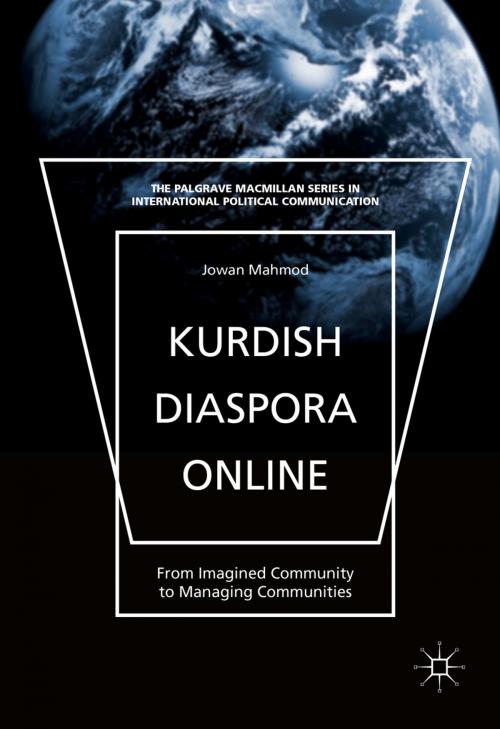Kurdish Diaspora Online
From Imagined Community to Managing Communities
Nonfiction, Social & Cultural Studies, Political Science, International, Social Science| Author: | Jowan Mahmod | ISBN: | 9781137513472 |
| Publisher: | Palgrave Macmillan US | Publication: | September 13, 2016 |
| Imprint: | Palgrave Macmillan | Language: | English |
| Author: | Jowan Mahmod |
| ISBN: | 9781137513472 |
| Publisher: | Palgrave Macmillan US |
| Publication: | September 13, 2016 |
| Imprint: | Palgrave Macmillan |
| Language: | English |
The argument offered in this book is that new technology, as opposed to traditional media such as television, radio, and newspaper, is working against the national grain to weaken its imagined community. Online activities and communications between people and across borders suggest that digital media has strong implications for different articulations of identity and belongingness, which open new ways of thinking about the imagined community. The findings are based on transnational activities by Kurdish diaspora members across borders that have pushed them to rethink notions of belonging and identity. Through a multidisciplinary and comparative approach, and multifaceted (online-offline) methodologies, the book unveils tensions between new and old media, and how the former is not only changing social relations but also exposing existing ones. Living in two or more cultures, speaking multiple languages, and engaging in transnational practices, diaspora individuals may have created a momentum that discloses how the imagined nation is diminishing in this digital era.
The argument offered in this book is that new technology, as opposed to traditional media such as television, radio, and newspaper, is working against the national grain to weaken its imagined community. Online activities and communications between people and across borders suggest that digital media has strong implications for different articulations of identity and belongingness, which open new ways of thinking about the imagined community. The findings are based on transnational activities by Kurdish diaspora members across borders that have pushed them to rethink notions of belonging and identity. Through a multidisciplinary and comparative approach, and multifaceted (online-offline) methodologies, the book unveils tensions between new and old media, and how the former is not only changing social relations but also exposing existing ones. Living in two or more cultures, speaking multiple languages, and engaging in transnational practices, diaspora individuals may have created a momentum that discloses how the imagined nation is diminishing in this digital era.















